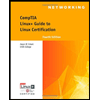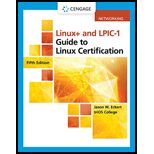Please answer the following Operating Systems Quetion and its two parts: Part A: A distributed system using mailboxes has two IPC primitives, send and receive. The latter primitive specifies a process to receive from and blocks if no message from that process is available, even though messages may be waiting from other processes. There are no shared resources, but processes need to communicate frequently about other matters. Is deadlock possible? Discuss. Part B: One way to prevent deadlocks is to eliminate the hold-and-wait condition. In the textbook it was proposed that before asking for a new resource, a process must first release whatever resources it already holds (assuming that is possible). However, doing so introduces the danger that it may get the new resource but lose some of the existing ones to competing processes. Propose an improvement to this scheme. * Please answer both parts correctly, and I will provide a Thumbs Up. Thanks.
Please answer the following Operating Systems Quetion and its two parts: Part A: A distributed system using mailboxes has two IPC primitives, send and receive. The latter primitive specifies a process to receive from and blocks if no message from that process is available, even though messages may be waiting from other processes. There are no shared resources, but processes need to communicate frequently about other matters. Is deadlock possible? Discuss. Part B: One way to prevent deadlocks is to eliminate the hold-and-wait condition. In the textbook it was proposed that before asking for a new resource, a process must first release whatever resources it already holds (assuming that is possible). However, doing so introduces the danger that it may get the new resource but lose some of the existing ones to competing processes. Propose an improvement to this scheme. * Please answer both parts correctly, and I will provide a Thumbs Up. Thanks.
Chapter13: Internet And Distributed Application Services
Section: Chapter Questions
Problem 5VE
Related questions
Question
Hello. Please answer the attached
*If you answer the questions correctly and completely, I will give you a thumbs up. Thanks.

Transcribed Image Text:Please answer the following Operating Systems Quetion and its two parts:
Part A:
A distributed system using mailboxes has
two IPC primitives, send and receive. The
latter primitive specifies a process to receive
from and blocks if no message from that
process is available, even though messages
may be waiting from other processes. There
are no shared resources, but processes need
to communicate frequently about other
matters. Is deadlock possible? Discuss.
Part B:
One way to prevent deadlocks is to eliminate
the hold-and-wait condition. In the textbook it
was proposed that before asking for a new
resource, a process must first release whatever
resources it already holds (assuming that is
possible). However, doing so introduces the
danger that it may get the new resource but
lose some of the existing ones to competing
processes. Propose an improvement to this
scheme.
* Please answer both parts correctly, and I
will provide a Thumbs Up. Thanks.
Expert Solution
This question has been solved!
Explore an expertly crafted, step-by-step solution for a thorough understanding of key concepts.
Step by step
Solved in 2 steps

Recommended textbooks for you

Systems Architecture
Computer Science
ISBN:
9781305080195
Author:
Stephen D. Burd
Publisher:
Cengage Learning

Operations Research : Applications and Algorithms
Computer Science
ISBN:
9780534380588
Author:
Wayne L. Winston
Publisher:
Brooks Cole

Principles of Information Systems (MindTap Course…
Computer Science
ISBN:
9781305971776
Author:
Ralph Stair, George Reynolds
Publisher:
Cengage Learning

Systems Architecture
Computer Science
ISBN:
9781305080195
Author:
Stephen D. Burd
Publisher:
Cengage Learning

Operations Research : Applications and Algorithms
Computer Science
ISBN:
9780534380588
Author:
Wayne L. Winston
Publisher:
Brooks Cole

Principles of Information Systems (MindTap Course…
Computer Science
ISBN:
9781305971776
Author:
Ralph Stair, George Reynolds
Publisher:
Cengage Learning

CompTIA Linux+ Guide to Linux Certification (Mind…
Computer Science
ISBN:
9781305107168
Author:
Jason Eckert
Publisher:
Cengage Learning

Fundamentals of Information Systems
Computer Science
ISBN:
9781305082168
Author:
Ralph Stair, George Reynolds
Publisher:
Cengage Learning

LINUX+ AND LPIC-1 GDE.TO LINUX CERTIF.
Computer Science
ISBN:
9781337569798
Author:
ECKERT
Publisher:
CENGAGE L